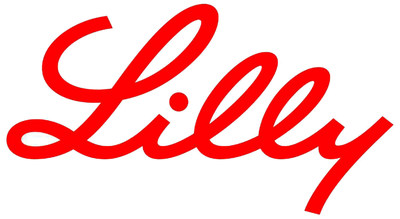Lilly's neutralizing antibody bamlanivimab (LY-CoV555) receives interim authorization from Health Canada as a treatment for COVID-19
"This authorization in
In BLAZE-1, patients treated with bamlanivimab showed reduced viral load and rates of symptoms and hospitalization. In BLAZE-1, frequency and types of adverse events were similar between bamlanivimab and placebo, with the majority being mild to moderate in severity. Infusion reactions and other allergic hypersensitivity events have been reported.
"As a Canadian company, we are proud to contribute to the global fight against COVID-19 and hope our efforts will help people in
Global manufacturing, supply and regulatory updates
On
Important Information about bamlanivimab
Bamlanivimab has not been approved by the FDA for any use. It is not known if bamlanivimab is safe and effective for the treatment of COVID-19.
Bamlanivimab is authorized under an Emergency Use Authorization only for the duration of the declaration that circumstances exist justifying the authorization of the emergency use of bamlanivimab under Section 564(b)(1) of the Act, 21 U.S.C § 360bbb-3(b)(1), unless the authorization is terminated or revoked sooner.
Healthcare providers should review the Fact Sheet for information on the authorized use of bamlanivimab and mandatory requirements of the EUA. Please see the FDA Letter of Authorization, Fact Sheet for Healthcare Providers, and Fact Sheet for Patients, Parents, and Caregivers (English) (Spanish).
Bamlanivimab is authorized for use under an EUA for treatment of mild to moderate COVID-19 in adults and pediatric patients with positive results of direct SARS-CoV-2 viral testing who are 12 years and older weighing at least 40 kg, and who are at high risk for progressing to severe COVID-19 and/or hospitalization.
Limitations of Authorized Use
- Bamlanivimab is not authorized for use in patients:
- who are hospitalized due to COVID-19, OR
- who require oxygen therapy due to COVID-19, OR
- who require an increase in baseline oxygen flow rate due to COVID-19 in those on chronic oxygen therapy due to underlying non-COVID-19 related comorbidity.
- Benefit of treatment with bamlanivimab has not been observed in patients hospitalized due to COVID-19. Monoclonal antibodies, such as bamlanivimab, may be associated with worse clinical outcomes when administered to hospitalized patients requiring high flow oxygen or mechanical ventilation with COVID-19.
Important Safety Information
There are limited clinical data available for bamlanivimab. Serious and unexpected adverse events may occur that have not been previously reported with bamlanivimab use.
Hypersensitivity Including Anaphylaxis and Infusion-Related Reactions
There is a potential for serious hypersensitivity reaction, including anaphylaxis, with administration of bamlanivimab. If signs and symptoms of a clinically significant hypersensitivity reaction or anaphylaxis occur, immediately discontinue administration and initiate appropriate medications and/or supportive care.
Infusion-related reactions have been observed with administration of bamlanivimab. Signs and symptoms of infusion-related reactions may include:
- fever, chills, nausea, headache, bronchospasm, hypotension, angioedema, throat irritation, rash including urticaria, pruritus, myalgia, dizziness.
If an infusion-related reaction occurs, consider slowing or stopping the infusion and administer appropriate medications and/or supportive care.
Limitations of Benefit and Potential Risk in Patients with Severe COVID-19
Benefit of treatment with bamlanivimab has not been observed in patients hospitalized due to COVID-19. Monoclonal antibodies, such as bamlanivimab, may be associated with worse clinical outcomes when administered to hospitalized patients requiring high flow oxygen or mechanical ventilation with COVID-19. See Limitations of Authorized Use.
Adverse Events
Adverse events reported in at least 1% of BLAZE-1 clinical trial participants on bamlanivimab 700 mg and placebo were Nausea (3% vs 4%), Diarrhea (1% vs 5%), Dizziness (3% vs 2%), Headache (3% vs 2%), Pruritus (2% vs 1%) and Vomiting (1% vs 3%).
Use in Specific Populations
Pregnancy
There are insufficient data on the use of bamlanivimab during pregnancy. Bamlanivimab should only be used during pregnancy if the potential benefit outweighs the potential risk for the mother and the fetus.
Breastfeeding
There are no available data on the presence of bamlanivimab in human or animal milk, the effects on the breastfed infant, or the effects on milk production. Breastfeeding individuals with COVID-19 should follow practices according to clinical guidelines to avoid exposing the infant to COVID-19.
About bamlanivimab
Bamlanivimab is a recombinant, neutralizing human IgG1 monoclonal antibody (mAb) directed against the spike protein of SARS-CoV-2. It is designed to block viral attachment and entry into human cells, thus neutralizing the virus, potentially treating COVID-19. Bamlanivimab emerged from the collaboration between
About BLAZE-1
BLAZE-1 (NCT04427501) is a randomized, double-blind, placebo-controlled Phase 2 study designed to assess the efficacy and safety of bamlanivimab alone or in combination with a second antibody for the treatment of symptomatic COVID-19 in the outpatient setting. To be eligible, patients were required to have mild or moderate symptoms of COVID-19 as well as a positive SARS-CoV-2 test based on a sample collected no more than three days prior to drug infusion.
The monotherapy arms of the trial enrolled mild to moderate recently diagnosed COVID-19 patients, studying three doses of bamlanivimab (700 mg, 2800 mg, and 7000 mg) versus placebo.
The primary outcome measure for the completed arms of the BLAZE-1 trial was change from baseline to day 11 in SARS-CoV-2 viral load. Additional endpoints include the percentage of participants who experience COVID-related hospitalization, ER visit or death from baseline through day 29, as well as safety.
The study is ongoing with additional treatment arms. Across all treatment arms, the trial will enroll over 800 participants.
Data from the monotherapy arms of BLAZE-1 were published in the
About
About Eli
This press release contains forward-looking statements (as that term is defined in the Private Securities Litigation Reform Act of 1995) about bamlanivimab (LY-CoV555) as a potential treatment for patients with or at risk of infection from COVID-19, as well as its supply, and reflects
|
Refer to: |
|
|
|
|
|
|
![]() View original content to download multimedia:http://www.prnewswire.com/news-releases/lillys-neutralizing-antibody-bamlanivimab-ly-cov555-receives-interim-authorization-from-health-canada-as-a-treatment-for-covid-19-301178310.html
View original content to download multimedia:http://www.prnewswire.com/news-releases/lillys-neutralizing-antibody-bamlanivimab-ly-cov555-receives-interim-authorization-from-health-canada-as-a-treatment-for-covid-19-301178310.html
SOURCE

